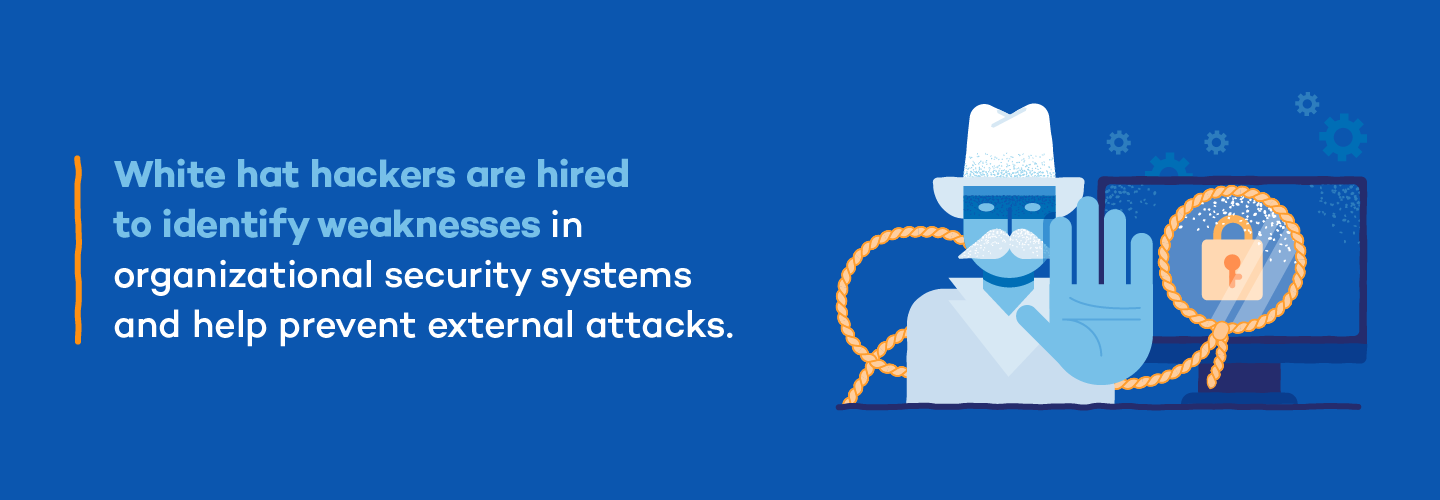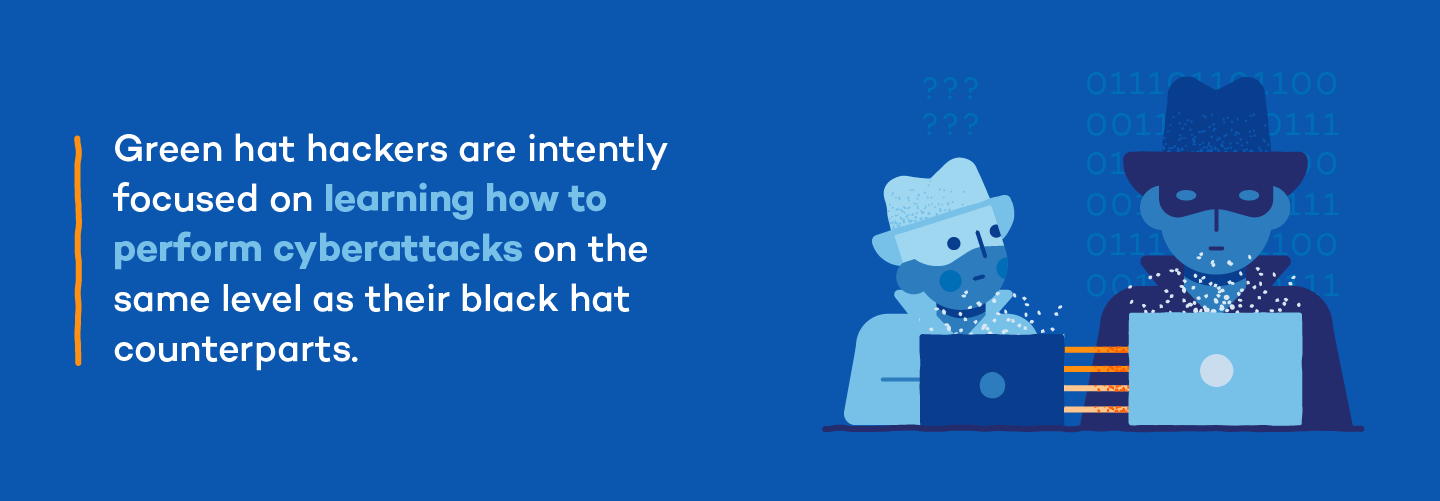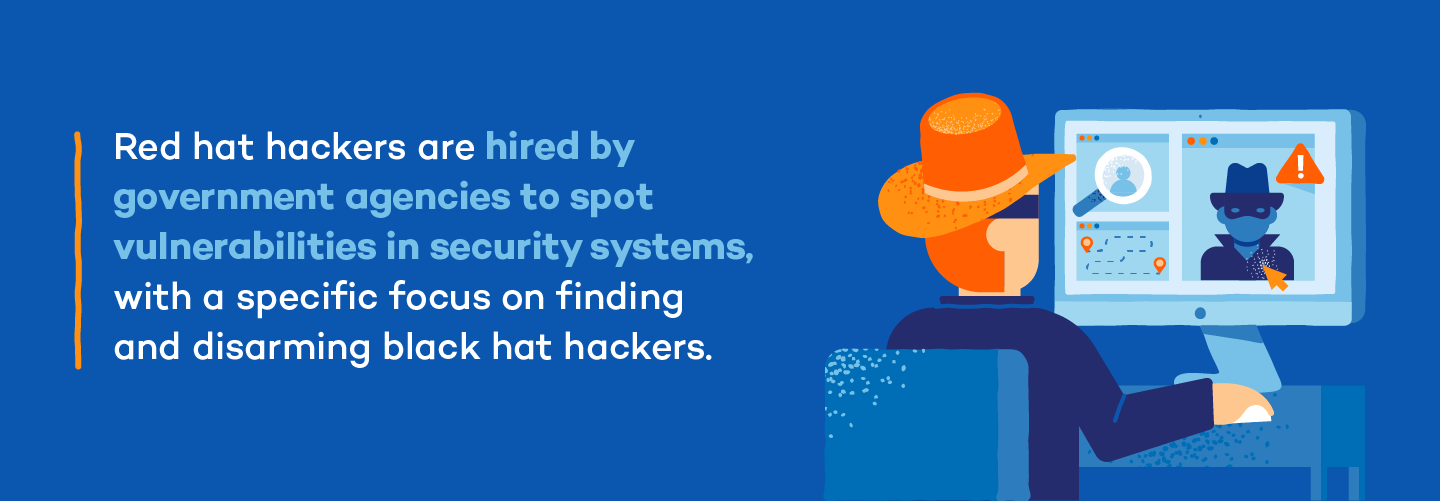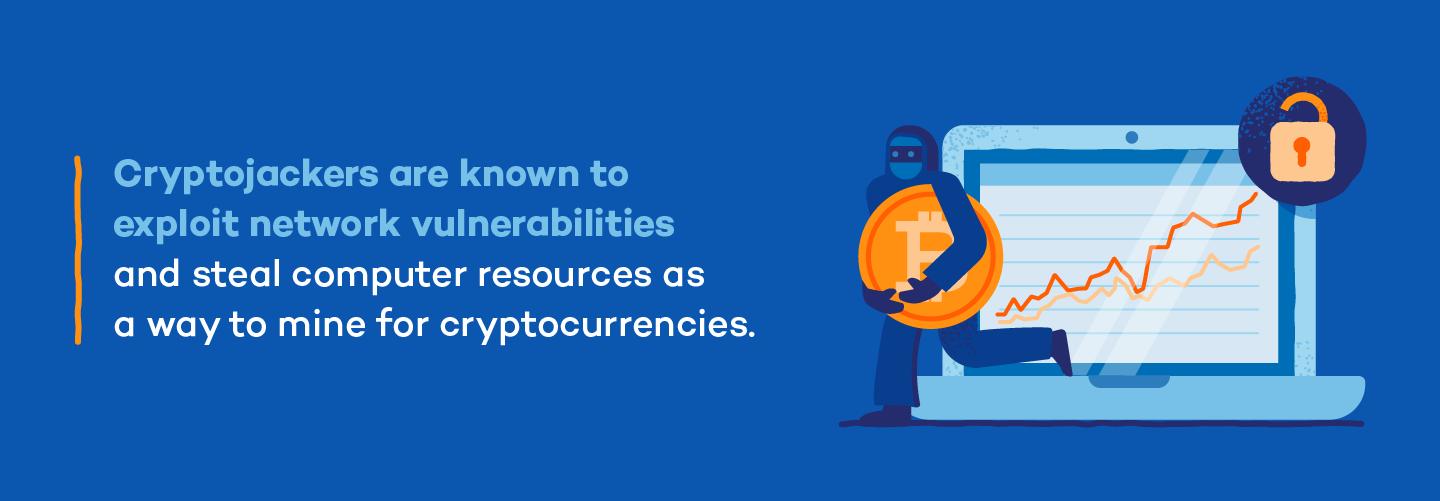There are 14 common hacker types, including:
- Black hat hackers
- White hat hackers
- Gray hat hackers
- Green hat hackers
- Blue hat hackers
- Red hat hackers
- Script kiddies
- State/nation-sponsored hackers
- Malicious insiders
- Hacktivists
- Cryptojackers
- Gaming hackers
- Botnets
- Elite hackers
Hacking has evolved into a full-blown industry, with professionals on both sides of the law. And the stakes are higher than ever.
In 2023 alone, 3,205 data compromise incidents affected roughly 353 million individuals in the U.S. — a staggering reminder of how vulnerable our digital lives have become.
While some hackers work to expose system flaws and protect people from harm, others exploit those same weaknesses for financial gain such as ransomware or just for the thrill of it. Not all hackers are criminals but all of them know how to break into systems and their motives make all the difference.
Let’s break down 14 types of hackers you should know about — and whether they’re working for you or against you.
What Are Hackers?
Hackers are individuals who use their technical knowledge to gain unauthorized access to systems, networks, or data. Some do it for malicious reasons like stealing information or causing damage (known as “black hat” hackers), while others use their skills ethically to find and fix security flaws (“white hat” hackers).
There are also “gray hat” hackers who fall somewhere in between — violating rules but not necessarily with bad intent. Beyond these, there are several other hacker levels that classify individuals based on their intent, skillset, and methods.
Types of Hackers at a Glance
In the ever-evolving world of cybersecurity, hackers come in many different forms, each with their own motives and methods. From malicious attackers to ethical defenders, understanding the various types of hackers can help you better protect your personal and business data.
Here’s a quick overview of the most common hacker types you should know about.
| Hacker Type | Threat Level | What They Do |
|---|---|---|
| Black hat hackers | High | Engage in illegal activities for financial gain, such as stealing data or launching attacks |
| White hat hackers | Low | Authorized to find and fix vulnerabilities in systems to enhance security |
| Gray hat hackers | Medium | Hack for fun or to find vulnerabilities, but may not always have permission |
| Green hat hackers | Low | New to hacking and learning the trade, often experimenting with different techniques |
| Blue hat hackers | Medium | Hired to test software or systems for vulnerabilities before release |
| Red hat hackers | High | Government-hired hackers who target black hats or other cybercriminals |
| Script kiddies | Low | Inexperienced hackers using pre-written scripts or tools to carry out attacks |
| State/nation-sponsored hackers | Very High | Hackers hired by governments to conduct cyber espionage or disrupt other nations |
| Malicious Insiders (whistleblowers) | High | Employees or contractors who exploit their access to steal or sabotage data |
| Hacktivists | Medium | Hackers with a political or social agenda targeting organizations to promote a cause |
| Cryptojackers | High | Use a victim’s system to mine cryptocurrency without their consent. |
| Gaming hackers | Medium | Hack or cheat in online games to gain unfair advantages or disrupt gameplay |
| Botnets | High | Use a network of compromised devices to carry out large-scale attacks, like DDoS |
| Elite hackers | Very High | Highly skilled, often targeting high-profile entities or conducting advanced cyberattacks |
Black Hat Hackers Definition
A black hat hacker is a cybercriminal who breaks into computer systems with malicious or criminal intent. You probably think of black hat hackers when you picture a typical hacker or cybercriminal, in simple terms — bad hackers.
Black hat hackers are the stereotypical hackers you would imagine when you hear the word “hacking.” Their advanced technical knowledge and ability to navigate the cybersecurity landscape make them skilled in carrying out their attacks. They go out of their way to find vulnerabilities in computer systems and software, which they exploit for financial gain or other malicious purposes.
Black hat hackers can do serious harm to individuals and organizations alike by stealing sensitive or personal data, compromising entire computer systems or altering critical networks.
Motives: To profit from data breaches
Most at risk: Organizations, which hackers typically target to steal sensitive data that can compromise a business financially.
What are White Hat Hackers?
White hat hackers are cybersecurity experts who use their skills to find vulnerabilities in organizational networks and computer systems. However, the key difference between them is that white hat hackers are authorized to hack these systems to spot security vulnerabilities before a criminal hacker can.

Typically hired by governments or large businesses, white hat hackers identify and fix loopholes or weaknesses in organizational security systems to help prevent an external attack or data breach.
Motives: Help businesses prevent cybersecurity attacks
Most at risk: Criminal hackers
What Are Gray Hat Hackers?
A gray hat hacker is a cybersecurity expert who finds ways to hack into computer networks and systems but without the malicious intent of a black hat hacker. Typically, they engage in hacking activities for the pure enjoyment of finding gaps in computer systems, and they might even let the owner know if they find any weak points.
However, they don’t always take the most ethical route when doing so — they may penetrate systems or networks without the owner’s permission (even though they aren’t trying to cause any harm).
Motives: Personal enjoyment
Most at risk: Anyone who doesn’t want unauthorized access to their systems and networks
What’s the Difference Between White, Black and Gray Hat Hackers?
You’ve probably heard the terms white hat, black hat and gray hat hackers thrown around — but what do they actually mean?
It all comes down to intent:
- White hat hackers are the good guys. Think of them as digital security guards. Companies hire them to find weak spots in systems before the bad guys can. Their goal is to protect your data and keep the internet safer for everyone.
- Black hat hackers are the ones you don’t want poking around your Wi-Fi. They break into systems illegally to steal personal info, install malware or make money through scams and fraud.
- Gray hat hackers don’t always follow the rules, but they’re not out to cause harm, either. They might find a security flaw and report it without permission, which can still get them into legal trouble.
Not all hackers are criminals, but understanding who’s who can help you better protect your devices and personal info.
While white, black and gray hats get most of the spotlight, they’re just the tip of the iceberg. There are several other types of hackers out there, each with its own tools, goals and tactics.
Green Hat: Hackers in Training
A green hat hacker is someone who is new to the hacking world but is intently focused on increasing their cyberattack skills. They primarily focus on gaining knowledge of how to perform cyberattacks on the same level as their black hat counterparts.
Their main intent is to eventually evolve into a full-fledged hacker, so they spend their time looking for learning opportunities from more experienced hackers.

Motives: To learn how to become an experienced hacker
Most at risk: No one (yet)
Blue Hat: Authorized Software Hackers
Blue hat hackers are hired by organizations to bug-test a new software or system network before it’s released. Their role is to find loopholes or security vulnerabilities in the new software and remedy them before it launches.
Motives: To identify vulnerabilities in new organizational software before it’s released
Most at risk: Criminal hackers
Red Hat Hacker: Government-Hired Hackers
Government agencies hire Red hat hackers to spot vulnerabilities in security systems, with a specific focus on finding and disarming black hat hackers.
So what is a red hat hacker? These hackers are known to be particularly ruthless in their hunt for black hat criminals and typically use any means possible to take them down. This often looks like using the same tactics as black hat hackers and using those methods against them — using the same malware, viruses and other strategies to compromise their machines from the inside out.

Motives: To find and destroy black hat hackers
Most at risk: Black hat hackers
Script Kiddies: Amateur Hackers
Script kiddies are amateur hackers who don’t possess the same level of skill or expertise as more advanced hackers in the field. To compensate for this, they turn to existing malware created by other hackers to carry out their attacks. Unlike green hat hackers who are eager to learn hacking techniques, script kiddies are more interested in buying or downloading existing tools for hacking.
Motives: To cause disruption
Most at risk: Organizations with unsecured networks and systems
Sponsored Hackers: International Threat Prevention Hackers
A country’s government appoints state/nation-sponsored hackers to gain access to another nation’s computer systems. They use their cybersecurity skills to retrieve confidential information from other countries to prepare for a potential threat or attack.
They monitor sensitive situations that could pose a threat in the future. These types of hackers are hired solely by government agencies.
Motives: To monitor and prevent international threats
Most at risk: International hackers and criminals
Whistleblowers: Malicious Insider
Malicious insider hackers, also known as whistleblowers, employ a cyberattack from within the organization they work for. Their motivation for the attack can vary from acting on a personal grudge against someone they work for to finding and exposing illegal activity within the organization.
Motives: To expose or exploit an organization’s confidential information
Most at risk: Internal executives and business leaders
Hacktivists: Politically Motivated Hackers
A hacktivist is someone who hacks into government networks and systems to draw attention to a political or social cause — hence why the name “hacktivist” is a play on the word “activist.” They use hacking as a form of protest, retrieving sensitive government information and using it for political or social purposes.
Motives: To shed light on an alarming social or political cause (or to make a political or ideological statement)
Most at risk: Government agencies
Cryptojackers: Cryptocurrency Mining Hackers
Cryptojackers exploit network vulnerabilities and steal computer resources to mine for cryptocurrencies. They spread malware in various ways, often by planting infectious viruses across the web.
These viruses and ransomware-like tactics help them deploy malicious code on victims’ systems. The code works quietly in the background without the victims’ knowledge. Once planted, it sends the results back to the hacker.

Cryptojackers are tough to spot since the malicious code can go undetected for a long time. Since their motive isn’t to steal victims’ data but rather to use their system as a vehicle for cryptocurrency mining, it’s difficult to trace the source of the infection once someone discovers it.
Motives: Cryptocurrency mining
Most at risk: Any individual or organization with unsecured networks
Gaming Hackers: Hackers of the Gaming World
Gaming hackers manipulate video games to gain an unfair advantage, especially in online multiplayer settings. They might use tools like aimbots, wallhacks or speed hacks to outperform other players, often ruining the experience for everyone else.
Some gaming hackers exploit bugs or loopholes in a game’s code to duplicate items, bypass restrictions or level up faster than intended. Others may target players directly by stealing account credentials, especially for games with valuable in-game items or currency.
Motives: To compromise gaming competitors
Most at risk: High-profile gamers
Botnets: Large-Scale Hackers
Botnets are networks of computers that have been infected with malware and are controlled remotely by a hacker — often without the device owner’s knowledge.
These compromised devices, sometimes called “zombies,” can include home PCs, smart TVs and even Wi-Fi routers. Once connected to a botnet, they can use your device to carry out large-scale cyberattacks like sending spam emails, launching distributed denial-of-service (DDoS) attacks or spreading more malware — all without you realizing it.
Botnets are especially dangerous for home users because infections often go unnoticed. You might just notice your device slowing down or acting strangely. That’s why keeping software updated, using strong passwords and having reliable antivirus protection is key to staying safe.
Motives: to compromise a high volume of network systems
Most at risk: Individuals with unsecured routers and WiFi-connected devices
Elite Hackers: The Most Advanced Hackers
Elite hackers are highly skilled professionals with advanced technical expertise. They specialize in cyber espionage, data breaches or targeted attacks against major organizations and governments. With a deep understanding of systems and security protocols, they can bypass even the most secure networks.
Elite hackers typically focus on high-value targets like corporations and government agencies; they are less likely to target everyday individuals.
Motives: To perform advanced cyberattacks on organizations and individuals
Most at risk: High-revenue corporations
Best Practices to Protect Against Hackers
Keeping your personal information secure in today’s digital world is more important than ever. While no method is foolproof, there are several proactive steps you can take to drastically reduce the risk of falling victim to hackers. Following these best practices can make it much harder for cybercriminals to access your data or compromise your devices.
- Use strong, unique passwords for all accounts: Avoid using the same password across multiple accounts. Instead, create complex, unique passwords that combine uppercase and lowercase letters, numbers and special characters.
- Enable multi-factor authentication (MFA) wherever possible: MFA adds an extra layer of security by requiring you to verify your identity through a second method (like a text message or authentication app) in addition to your password.
- Keep all software and operating systems up-to-date: Hackers often exploit security flaws in outdated software. Regularly updating your operating system, browsers, apps and other software ensures you’re protected with the latest security patches.
- Be cautious of suspicious emails, links and attachments: Phishing scams are one of the most common methods hackers use to trick users into providing personal information or downloading malware. Always verify the sender before clicking links or opening attachments, especially if the email seems suspicious or unexpected.
- Use a firewall and antivirus software: A firewall can block unauthorized access to your devices, while antivirus software helps detect and remove harmful malware. Ensure both are enabled and up-to-date for maximum protection.
- Browse the web safely and avoid untrusted websites: Be cautious when browsing unfamiliar websites. Look for secure connections (indicated by “https” and a padlock symbol) before entering sensitive information.
- Back up your important data regularly: Regular backups can save you in the event of a cyberattack like ransomware, which locks you out of your files. Use an external hard drive or cloud storage to keep copies of your important data, ensuring you can restore it if needed.
Protect Your Home From Hackers With Antivirus
Understanding the different types of hackers is the first step in protecting your home network and personal data. With cyber threats becoming more advanced every day, reliable security isn’t just a nice-to-have—it’s essential.
With Panda Dome, you can help keep your devices, data and family safe from today’s most common cyber threats. Stay a step ahead of cybercriminals with security you can trust.
Types of Hackers FAQ
Still have questions about different types of hackers? We answer them below.
How Does Hacking Work?
Hackers use various methods to carry out their goal of finding (and often exploiting) vulnerabilities in a computer system or network. They can:
- Use social engineering tactics or brute force attacks to gain unauthorized access to personal information like usernames and passwords, which they can then exploit for financial or personal gain
- Use malicious code or programs to infiltrate a user’s device and deploy malware
- Take advantage of open, unsecured networks to gain access to the devices on those networks
- Intercept emails to gain access to sensitive information
- Install monitoring software to log keystrokes and capture login credentials, credit card numbers and other sensitive data
What’s the Most Dangerous Type of Hacker for Home Users?
For home users, black hat hackers pose the biggest threat. These cybercriminals often target individuals to steal personal data, access financial accounts or install malware. They may use phishing emails, fake websites or unsecured networks to carry out their attacks — making strong security measures essential for home protection.
What Are Good Hackers Called?
Good hackers are called white hat hackers or ethical hackers. They use their skills to identify security vulnerabilities and help organizations fix them before malicious hackers can exploit them. White hats often work in cybersecurity roles, perform penetration testing, and follow legal and ethical guidelines. They’re part of the broader spectrum of hacker levels, which ranges from harmful black hats to helpful white hats.
Which Type of Hackers Break Into Systems for Personal or Financial Gain?
Hackers who break into systems for personal or financial gain are known as black hat hackers. They exploit vulnerabilities to steal data, install malware, commit fraud, or sell information on the dark web. Black hats operate illegally and are considered the most dangerous among the different hacker levels.





